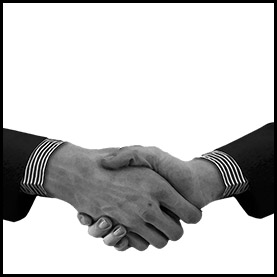 To start your consulting practice – that is, consulting with the Enneagram – the first place to start is to know the difference between coaching, training and consulting. Although there is some overlap – for example, consultants often need to coach and train during their consultations; coaches sometimes coach in the organizational context of the client; and trainers sometimes find they must deal with the real dynamics in the room – the three professions are quite different.
To start your consulting practice – that is, consulting with the Enneagram – the first place to start is to know the difference between coaching, training and consulting. Although there is some overlap – for example, consultants often need to coach and train during their consultations; coaches sometimes coach in the organizational context of the client; and trainers sometimes find they must deal with the real dynamics in the room – the three professions are quite different.
Coaching is one-to-one. The coach offers services to one coaching client, and even if the coach collects some data from the organization, this data is always about the client. Trainers provide offerings to groups of people, and they design structured learning for these groups. In most cases, trainers do not deal with the client system’s real issues, although they may help solve real needs. For example, when teaching conflict resolution, trainers use cases and role-plays, not the client’s issues of conflict between and among one another. If they do, a big explosion can occur and damage can be done.
Consultants, on the other hand, deal directly with clients’ real issues and they deal with them in real time. This is what consultants are trained and hired to do. Because of this, consultants have to have a different skill set from people who train or coach. Consultants need to have excellent skills in contracting, data collection and diagnosis, designing interventions to help the client change, an understanding of organizational behavior, and more.
I teach consulting with the Enneagram; it is my favorite program because in five days, participants with varying degrees of consulting experience – from none to some – go from not being sure what to do and how to do it (including using the Enneagram in this work) to a level of excellence that stuns even them. From having done this program multiple times, plus years teaching these skills (but without the Enneagram) to consultants through NTL, Arthur Anderson Business Consultants, and more, I concluded that the following factors really matter – that is, if you want to be more than average and especially if you want to be a great consultant:
Factors that matter
Contracting is the most important step
Almost all consulting projects that don’t work or don’t work well can be traced back to problems in contracting: different expectations that are not clear, not-discussed or that change and are not addressed; misunderstanding of roles, both client and consultant roles; and insufficient resources.
Follow the action research process (and in sequence)
It is simultaneously hard and simple: contracting; collecting data; communicating the data; challenging the client to act; changing; and closing the consultation. Of course, each step has its intricacies, but always follow the process. The process works when the consultant is the primary person collecting data, but works just as well with large systems data collection methodologies such as Future Search and Open Space.
Remember that it is the client’s project, not the consultant’s
While each of you has a role, remember that the leader (your client) has not given you carte blanche to take over his or her role. Do not get in control struggles with your clients; while they are not always right, neither are you and it is the consultant’s job to convince, cajole and collaborate, but never to control.
Do your own personal work, always
Every time I lead my five-day Consulting with the Enneagram program, the participants always say that they experience as much or more personal work in this program than any of my others. All my other programs focus on personal and professional development (as well as how to do this with others), so there is something ironic that they find this program, which has no person work built into it, the most challenging. However, it makes sense because consulting requires all of you to be there. Consulting pushes every unworked button you might have: authority issues, control needs, interpersonal communication and contact, the ability to give and receive feedback, working with conflict, esteem issues, and more. You name it, you will find it in your consulting work and reactivity never produces a positive result.
So consulting is never easy, but it is fun, deep, useful, challenging, dynamic, and rarely boring. Using the Enneagram in your consulting doubles all of this. But it is not for the “unworked” person, the high control individuals, or those who like to believe their inferences and projections are reality. If you are ready for the ride, come on board!

Comments are closed.